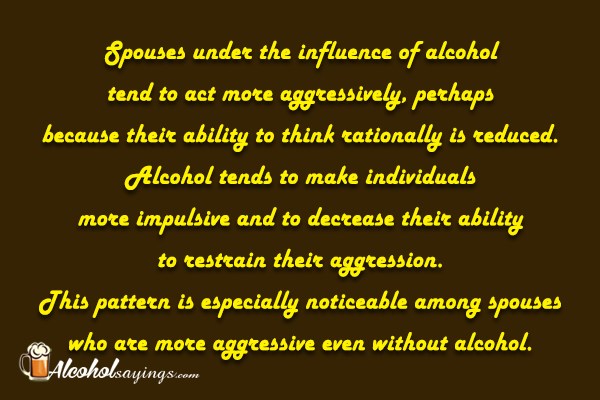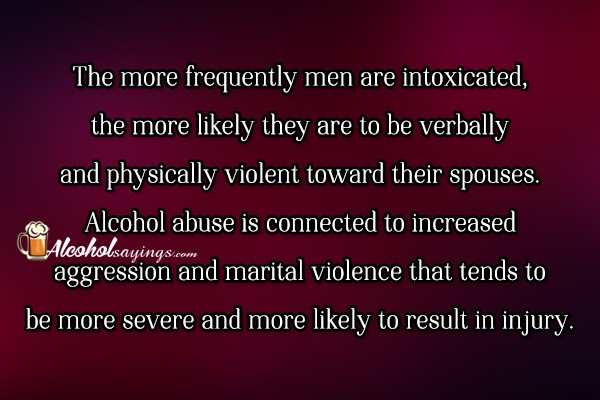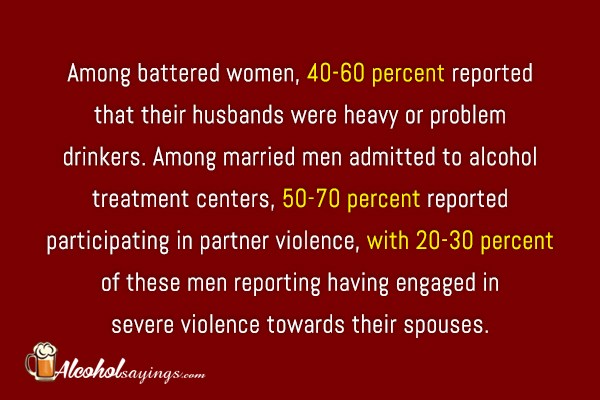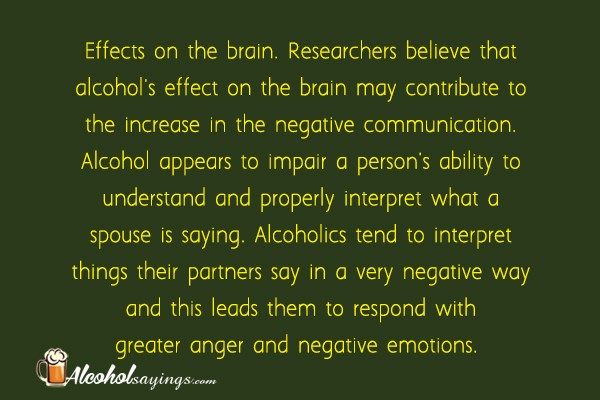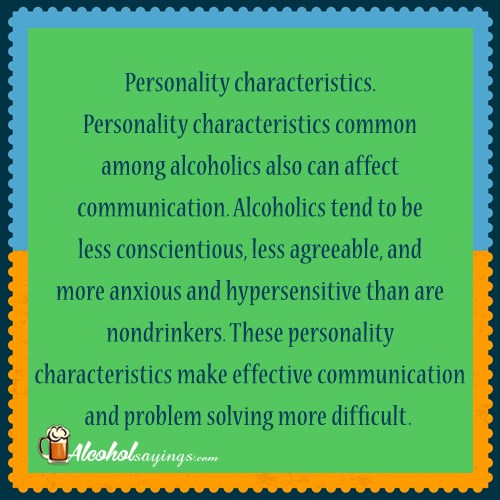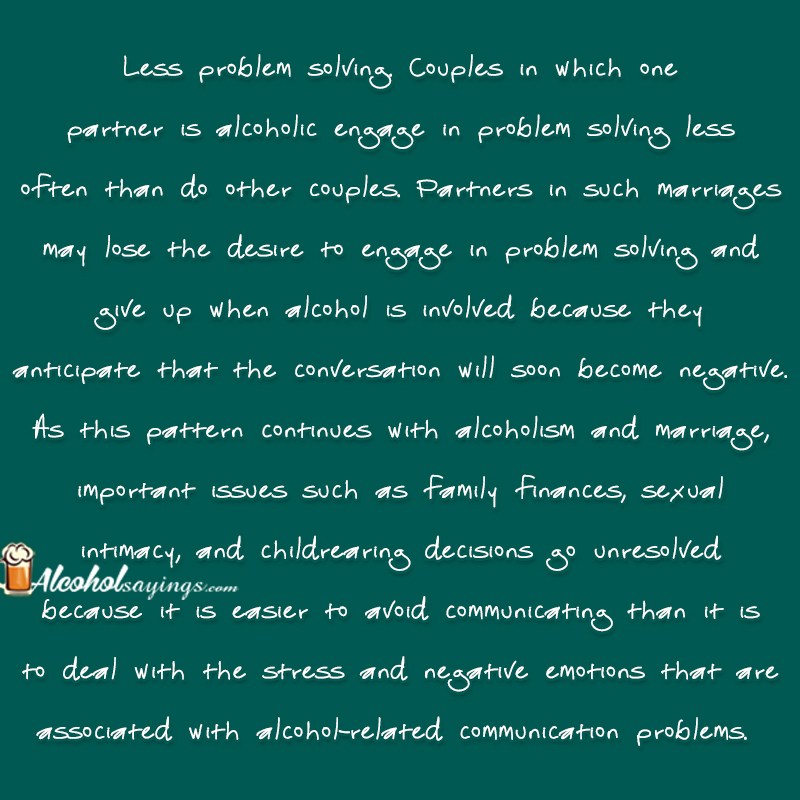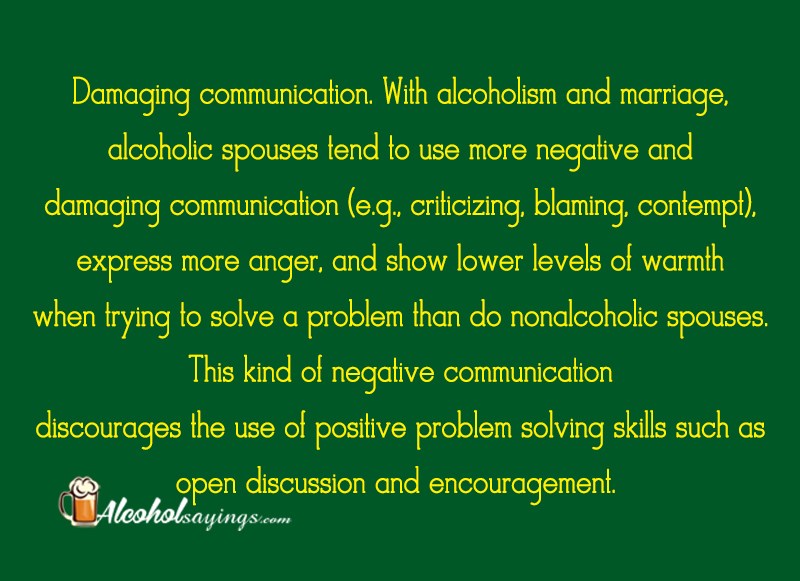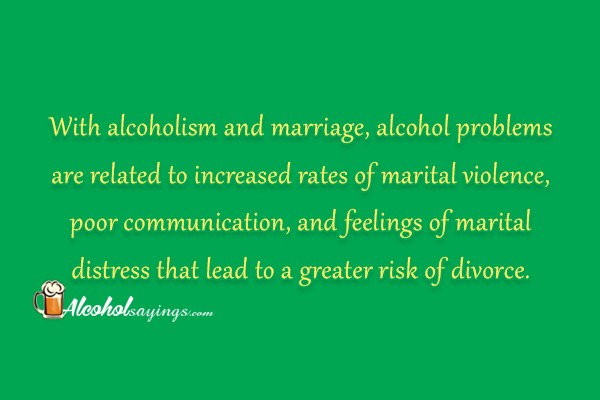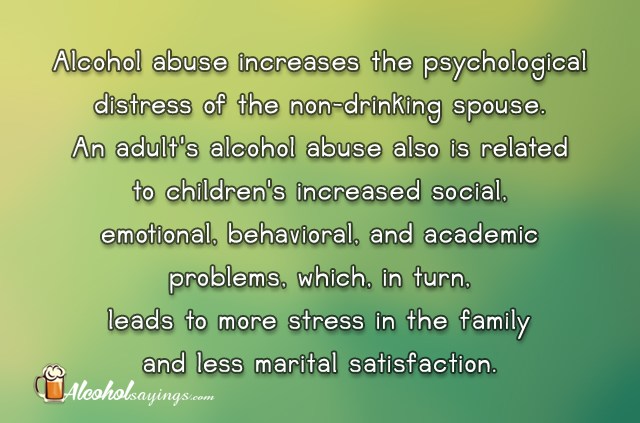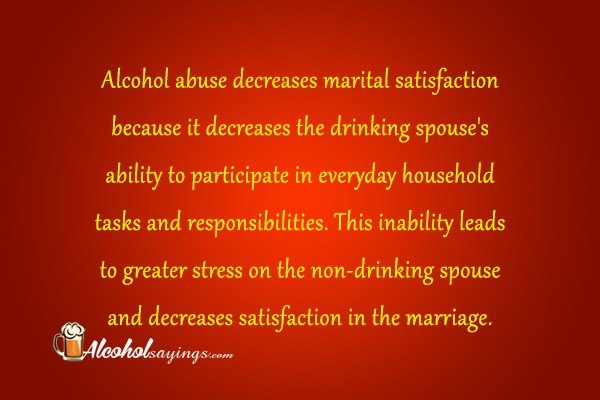Spouses under the influence of alcohol tend to act more aggressively, perhaps because their ability to think rationally is reduced. Alcohol tends to make individuals more impulsive and to decrease their ability to restrain their aggression. This pattern is especially noticeable among spouses who are more aggressive even without alcohol.
